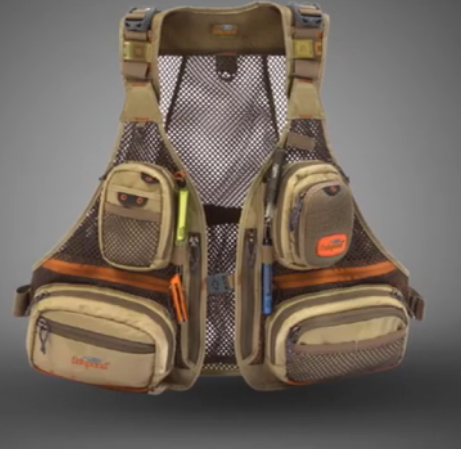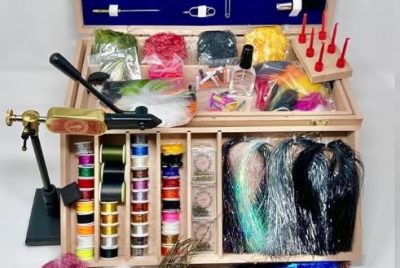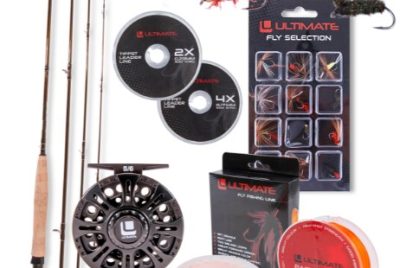Fly Fishing Vest
Introduction
As an avid fly angler, I can attest to the significance of a reliable fly fishing vest. These vests are more than just accessories; they are essential gear that can significantly enhance your fishing experience. In this article, I’ll share my insights and provide helpful suggestions on why investing in a fly fishing vest is worth it and how to make the most of it.
The Advantages of Using a Fly Fishing Vest
Comfort and Mobility
One of the primary advantages of a fly fishing vest is the comfort it provides during long fishing sessions. Unlike traditional fishing vests, these are designed to distribute weight evenly across your upper body, reducing strain on your back and shoulders. With a well-fitted vest, you’ll enjoy better mobility, allowing you to cast effortlessly and navigate through challenging terrains.
Pockets and Storage
Fly fishing vests come equipped with multiple pockets of various sizes, providing ample storage for your fishing essentials. You can keep your fly boxes, tippet spools, leaders, and other accessories within easy reach. Having everything at your fingertips not only saves time but also keeps you focused on the fishing action.
Easy Access to Gear
When you’re standing in a river or on the bank, having quick access to your gear is crucial. A fly fishing vest enables you to switch flies or change tippets without fumbling through a tackle box. It enhances your efficiency and ensures that you don’t miss any opportunities.
Versatility and All-Day Wear
Unlike bulky fishing backpacks, fly fishing vests are designed for all-day wear. You won’t feel weighed down or restricted, even during extended fishing trips. Moreover, many vests come with adjustable features, allowing you to adapt the fit based on the layers you wear underneath.
Choosing the Right Fly Fishing Vest
Material and Durability
When selecting a fly fishing vest, pay close attention to the material and construction. Look for vests made from durable and water-resistant materials, as they will endure various weather conditions and rough handling. Reinforced stitching and quality zippers are also essential for long-lasting performance.
Breathability and Weather Resistance
Fishing often involves exposure to changing weather conditions. A good fly fishing vest should offer breathability to keep you cool in hot weather while providing some level of weather resistance in case of rain or splashes. Look for vests with mesh panels or ventilation systems to enhance airflow.
Proper Fit and Adjustability
A well-fitted vest ensures maximum comfort and functionality. Opt for vests with adjustable straps or cinches to customize the fit according to your body shape. Avoid vests that are too tight, as they can restrict movement, and overly loose vests might cause discomfort during casting.
Personal Preference and Style
Each angler has different needs and preferences when it comes to gear. Consider factors like the number of pockets, D-ring attachments, and additional features that suit your fishing style. Also, choose a vest that complements your personal style, as you’ll be more inclined to wear it regularly.
Organizing Your Gear in a Fly Fishing Vest
Essential Gear to Carry
A well-organized fly fishing vest ensures that you have all the necessary tools and accessories at your disposal. Carry essential items like fly boxes, tippet holders, nippers, forceps, and floatant. Keep your gear within easy reach to avoid disrupting your fishing flow.
Fly Boxes and Tippet Holders
Fly boxes are essential for keeping your flies organized and accessible. Consider using transparent or labeled boxes to quickly identify different patterns. Tippet holders are also vital for organizing and securing your tippet spools.
Tools and Accessories
Aside from flies, various tools and accessories are essential for successful fly fishing. Carry forceps for easy hook removal, nippers for cutting tippets and leaders, and a good-quality pair of polarized sunglasses to spot fish beneath the water’s surface.
Snacks and Hydration
Don’t forget to pack some energy-boosting snacks and a water bottle to keep you hydrated throughout your fishing adventure. Staying nourished and refreshed will help you maintain focus and make the most of your time on the water.
Tips for Fly Fishing Vest Maintenance
Cleaning and Washing
Regularly clean your fly fishing vest to remove dirt, sweat, and fish odors. Follow the manufacturer’s cleaning instructions and avoid using harsh chemicals that could damage the fabric or waterproof coatings.
Drying and Storage
After fishing, hang your vest in a well-ventilated area to dry thoroughly. Avoid storing a damp vest in an enclosed space, as it could lead to mold and unpleasant odors. Store it in a cool, dry place when not in use.
Repairing Wear and Tear
Inspect your fly fishing vest regularly for any signs of wear or damage. Reinforce loose seams and repair minor tears to extend the life of your vest. Investing in a quality vest and maintaining it well will ensure it serves you for many seasons.
Alternative Gear Options: Fly Fishing Packs and Sling Bags
Pros and Cons of Alternative Gear
While fly fishing vests are popular, they might not be the best choice for everyone. Fly fishing packs and sling bags offer viable alternatives, each with its own advantages and drawbacks. Consider your fishing style and needs when deciding which gear option suits you best.
Fly Fishing Packs
Fly fishing packs are backpack-style gear organizers that offer larger storage capacity than vests. They are ideal for anglers who need to carry more gear or for longer fishing trips. Some packs even come with hydration reservoirs, making them great for extended excursions.
Sling Bags
Sling bags are worn across the chest or back and provide easy access to gear. They are perfect for anglers who prefer a lightweight and minimalist approach. However, their limited storage space might not accommodate all the gear needed for certain fishing scenarios.
Making the Most of Your Fly Fishing Vest
Keeping Essential Items Within Reach
Organize your vest in a way that keeps the most frequently used items within easy reach. Place your most productive fly patterns and frequently used tools in pockets that are easily accessible while on the water.
Organizing for Specific Fishing Scenarios
Depending on the type of water you’re fishing and the targeted species, adjust your vest organization accordingly. For example, when fishing dry flies on a small stream, you won’t need as many fly boxes as you would when fishing nymphs on a large river.
Streamlining Your Approach
Carry only what you need for a specific fishing trip to avoid unnecessary weight and clutter. A well-organized and streamlined vest will make your fishing experience more enjoyable and productive.
Safety Considerations When Wearing a Fly Fishing Vest
Buoyancy and Wading
While fly fishing vests do offer some buoyancy, they are not designed to replace life jackets. Always wear a proper life jacket when wading in deep water or fast currents for added safety.
Staying Visible
Opt for vests with bright colors or reflective elements, especially if you fish in areas with boat traffic. High-visibility vests help others spot you easily, reducing the risk of accidents.
Assessing Weight and Comfort
Be mindful of the weight you carry in your vest, as an overloaded vest can lead to fatigue and discomfort. Balance the essential gear with the need for mobility and comfort.
Personal Fly Fishing Vest Recommendations
My Favorite Fly Fishing Vest
As a dedicated fly angler, I’ve tried several fly fishing vests over the years. While preferences vary among anglers, my personal favorite is the XYZ Fly Fishing Vest. Its durable construction, ample pockets, and thoughtful design make it a reliable companion on every fishing trip.
Reasons for My Choice
The XYZ Fly Fishing Vest’s lightweight and breathable fabric keep me comfortable during long days on the water. Its numerous pockets allow me to stay organized and carry all my essential gear conveniently. The adjustable straps ensure a perfect fit, and the vest’s classic design appeals to my sense of style.
Conclusion
Investing in a high-quality fly fishing vest is a game-changer for any fly angler. The convenience, organization, and comfort it provides on the water can significantly impact your fishing success and overall enjoyment. Remember to choose a vest that suits your specific needs, maintain it regularly, and make the most of its features to enhance your fly fishing adventures.
FAQs:
1.What are the key features to look for in a fly fishing vest?
A good fly fishing vest should have ample pockets for gear storage, breathable and weather-resistant material, proper fit and adjustability, and a design that matches your fishing style.
2.Can I wear a fly fishing vest during hot weather?
Yes, many modern fly fishing vests are designed with breathable materials and ventilation, making them comfortable to wear in hot weather.
3.Is a fly fishing vest suitable for saltwater fly fishing?
Yes, fly fishing vests are versatile and can be used for both freshwater and saltwater fly fishing. However, ensure the vest is made from corrosion-resistant materials if you plan to fish in saltwater.
4.Are there fly fishing vests designed specifically for women?
Yes, some brands offer fly fishing vests designed specifically for women, providing a better fit and tailored features to accommodate their preferences.
5.Can I use a fly fishing vest for other outdoor activities?
Certainly! Fly fishing vests are practical for various outdoor activities like hiking, birdwatching, and photography. They offer convenient storage and easy access to your essentials on any adventure.



